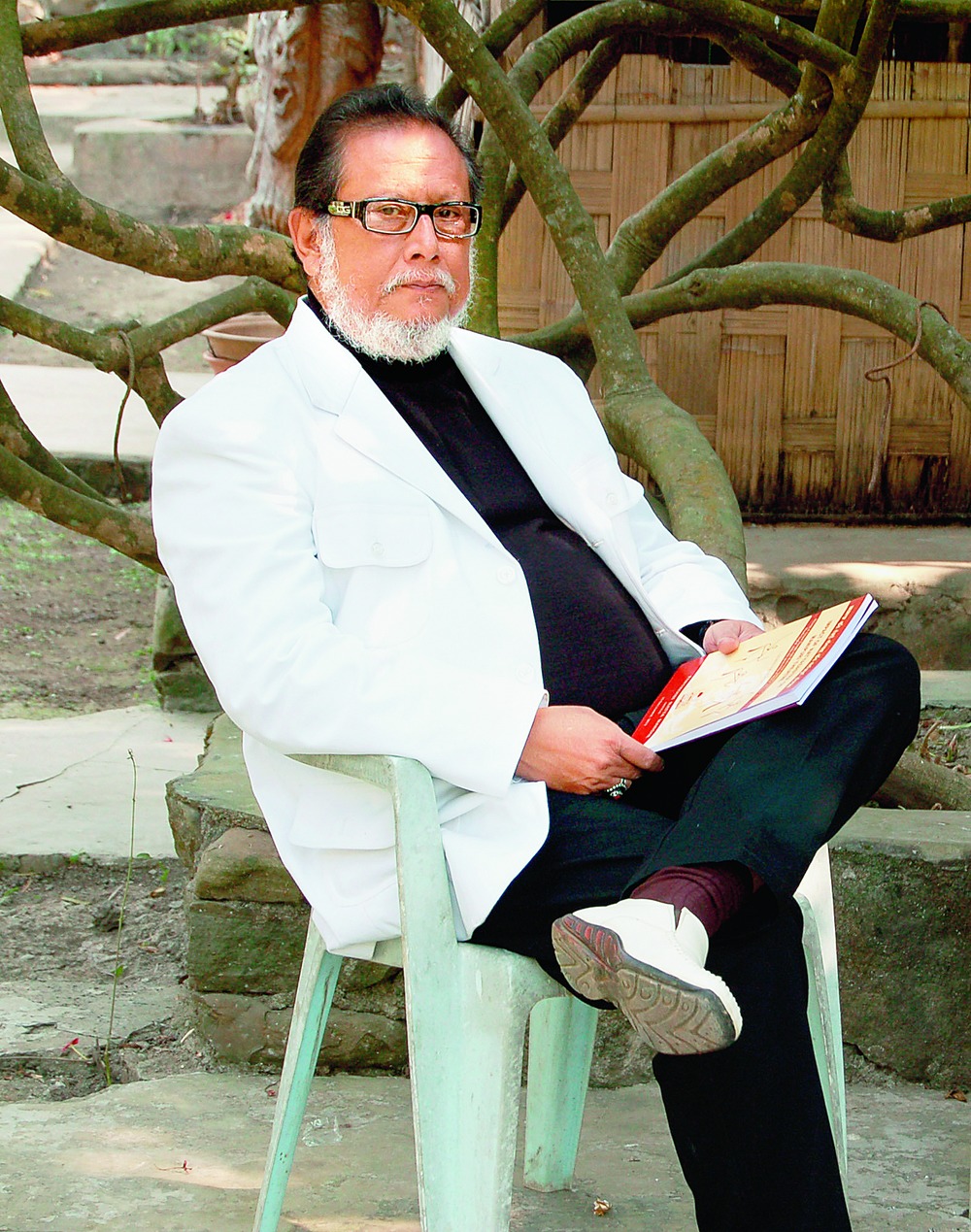
Nov. 12: In the early 1960s, a teenager growing up in Imphal was passionate about poetry and painting. But, he became neither a poet nor a painter.
Theatre aficionados the world over would perhaps disagree, because Ratan Thiyam, now 68, has always treated the stage as his aesthetic canvas, as rich in visual poetry as it is strong of voice.
Winner of the Padma Shri and Sangeet Natak Akademi awards, playwright and theatre guru Thiyam has liberally borrowed from Sanskrit epics, tribal martial art, traditional Noh and Kabuki theatres of Japan, Shakespeare and more, fused them and made them his own.
Currently chairing the National School of Drama (NSD), New Delhi, Thiyam will be in Chaibasa to celebrate Jharkhand's foundation day with Adivasi Adi Bimb, a three-day national tribal festival of dance, music and theatre. A collaboration between the NSD and state art and culture department, it will start on November 15.
It is not his first visit to Jharkhand, Thiyam said over phone from Imphal. "I have been to the state at least thrice. But, this is the first time that the NSD is organising this festival in Jharkhand as a tribute to its people. It promises to be very interesting," Thiyam, who will inaugurate the fest with West Singhbhum DC Shantanu Kumar Agrahari, said.
Plays to be staged will be by Jharkhand's Usha Mishra, Odisha's Subodh Pattanayak and Assam's Prabin Hajong. Tribal India would come alive in dances, including Baha and Sohrai of Bengal, Karma of Bihar, Gubukudu and Ghumura of Odisha, Saila and Gudumbaja of Madhya Pradesh, Komkhurpuilam and Honrei Kasui of Manipur.
Unlike most visitors, Thiyam does not dismiss Jharkhand as mineral-rich but economically poor with a political climate that resembles an unpredictable volcano. "Jharkhand is a young, growing state with an enthusiastic government. I found the department of art and culture very ready and willing, very open to new ideas," he said.
The man who set up the Chorus Repertory Theatre in Imphal in 1976 believes theatre and the arts need recognition and patronage. But, speaking from his experience in theatre for nearly 40 years, Thiyam strongly feels "political will" in India is woefully inadequate when it comes to theatre and the arts.
"It's pathetic. An elected government takes three-four years to stir itself and set things in motion. By the time it drafts a policy (on the arts), it is time for another election," he says, the warm baritone getting wry.
Thiyam's theatre is that of protest, perhaps best exemplified by his seminal play Chakravyuh, which interprets Abhimanyu's assassination to relate how an individual succumbs to social machinery symbolised by the saptarathis (seven charioteers). Academics see this play, staged across the world, as an allegory of the denial of civil rights experienced by the Manipuris at the hands of the state machinery empowered by the Armed Forces (Special Powers) Act.
But, Thiyam is extremely measured when asked about his politics. "It's easy to say theatre is about going against the establishment. But, people make up the establishment. My theatre makes its point through dialogue, argument, logic and aesthetics. That's why I do not identify with one political ideology. I speak my heart on the stage."

